Abstract
Despite the criticism that psychoanalytic models are not applicable to social phenomena, knowledge of the dynamics of narcissistic development aids in understanding a particular kind of racist individual. Specifically, racist attitudes may be indicative of a narcissistic personality disorder or of a regression to primitive narcissistic functioning secondary to environmental forces. The differentiation between the narcissistic racist, the stress-induced racist, and the socially misinformed racist is discussed utilizing clinical paradigms discovered in psychotherapy. Life experiences and religion are discussed as possible aids in the transformation of primary narcissism into secondary narcissism.
Full text
PDF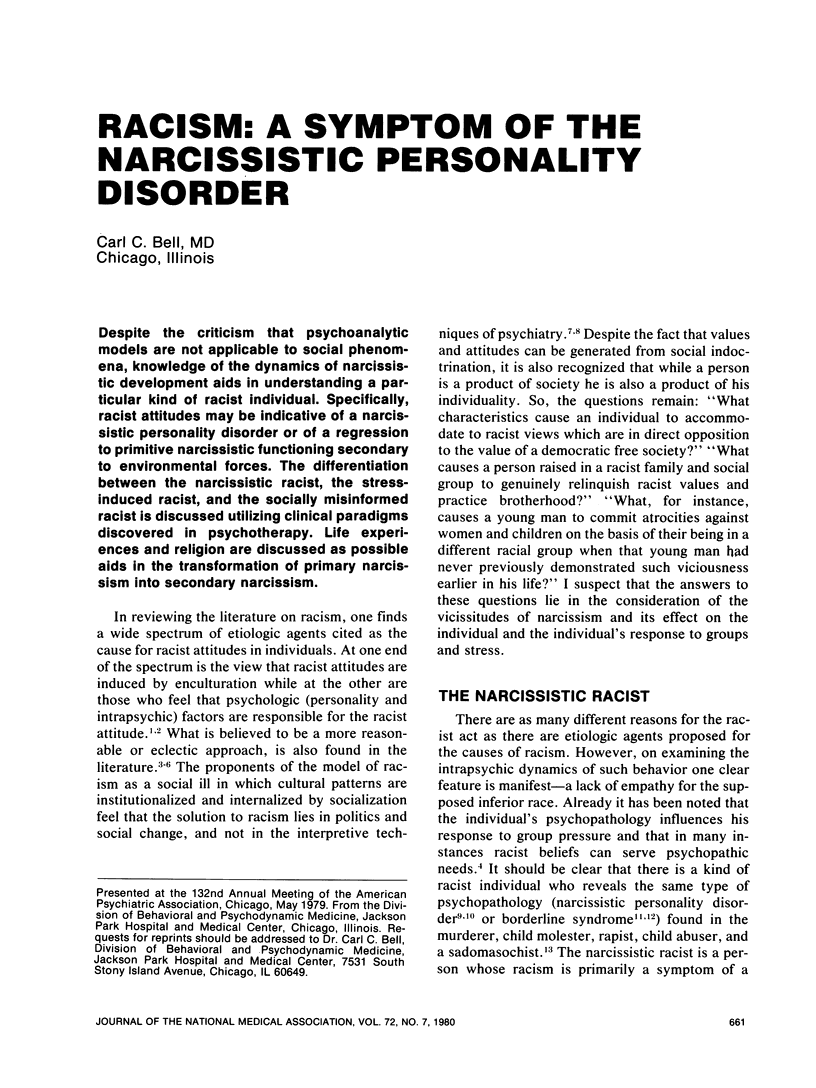
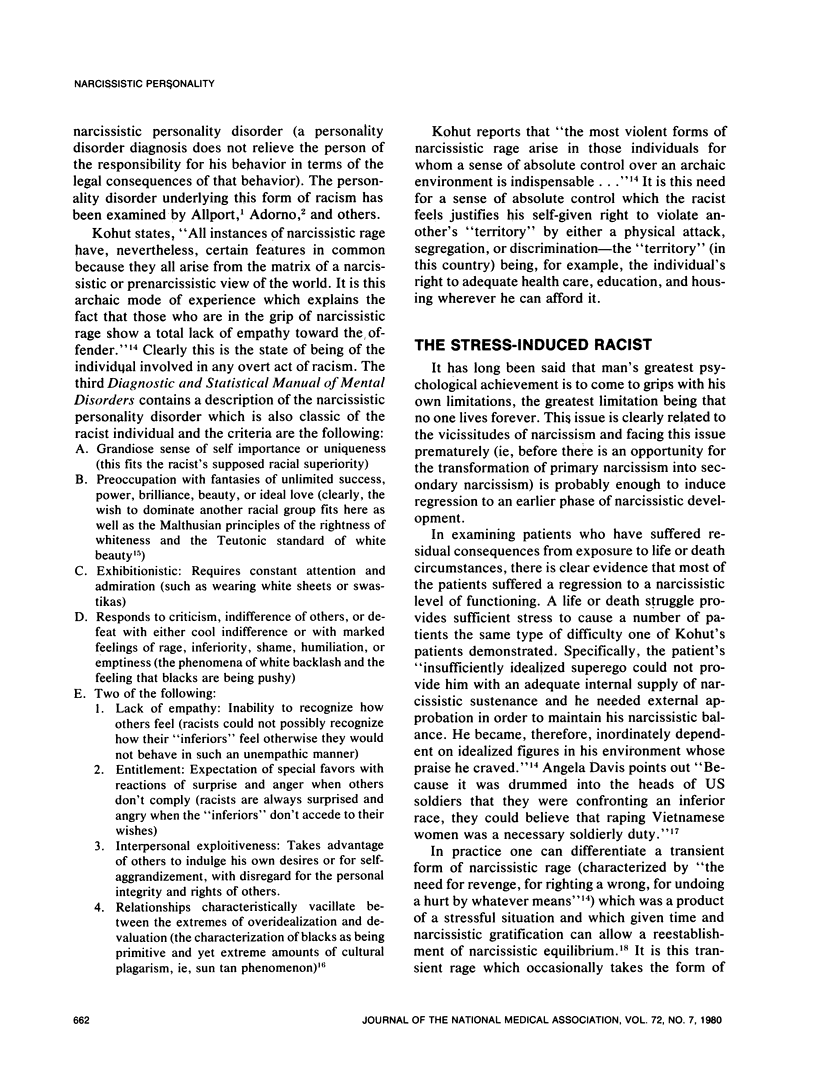
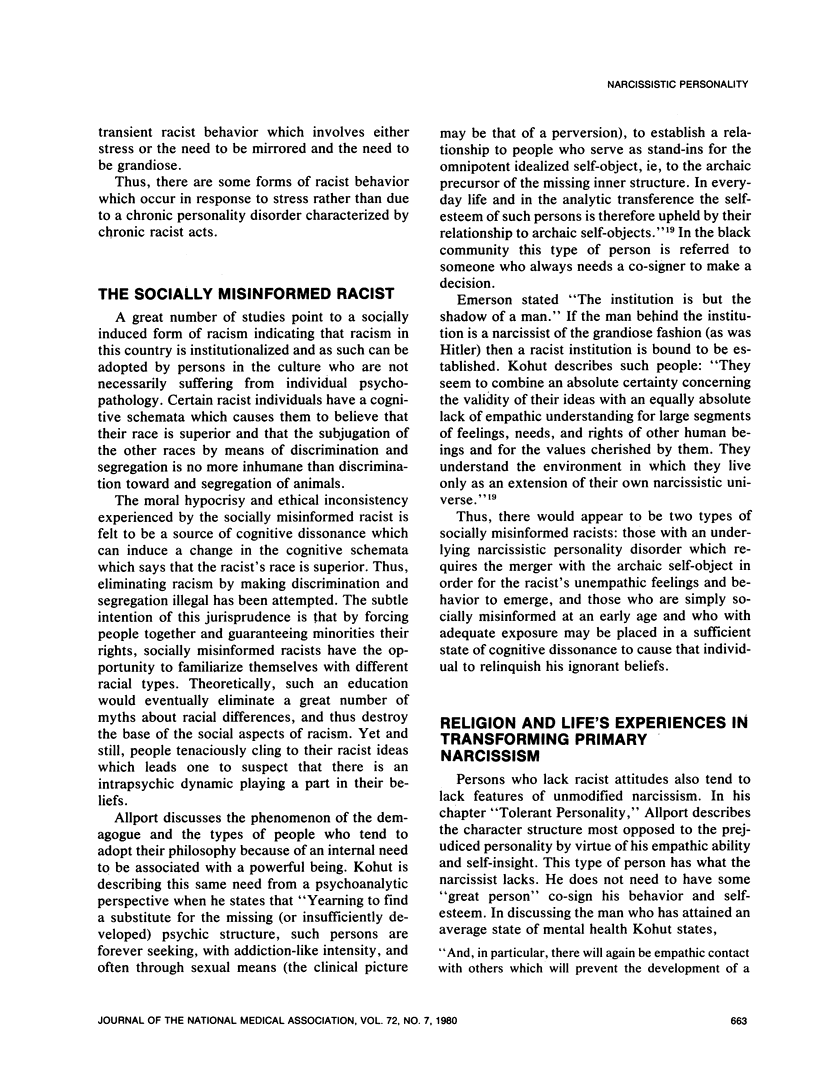
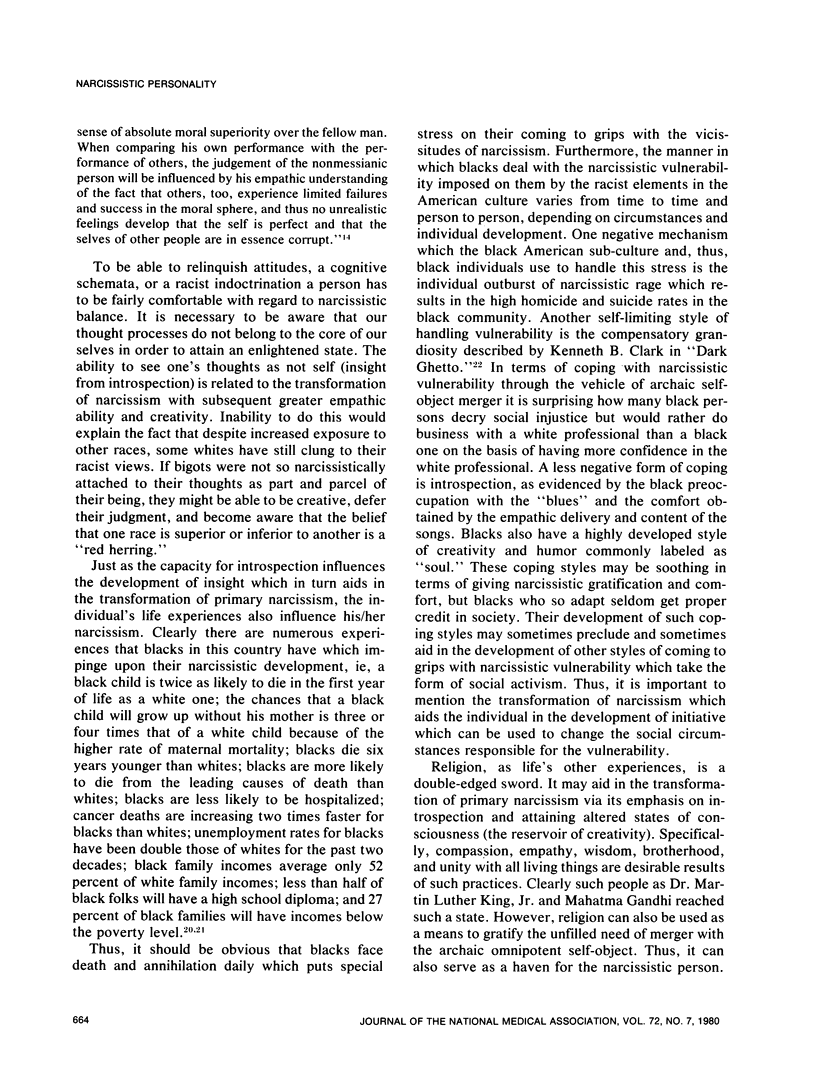
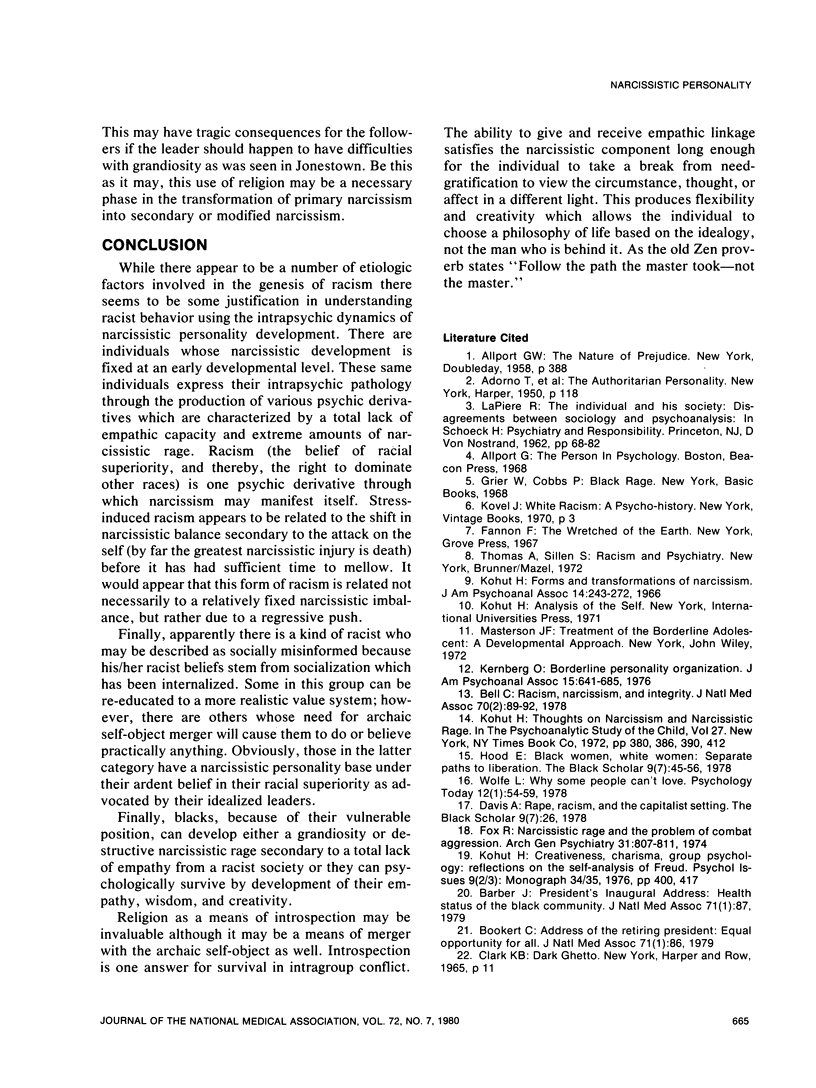
Selected References
These references are in PubMed. This may not be the complete list of references from this article.
- Barber J. B. Health status of the black community. J Natl Med Assoc. 1979 Jan;71(1):87–90. [PMC free article] [PubMed] [Google Scholar]
- Bell C. C. Racism, narcissism, and integrity. J Natl Med Assoc. 1978 Feb;70(2):89–92. [PMC free article] [PubMed] [Google Scholar]
- Bookert C. C. Address of the retiring president: equal opportunity for all. J Natl Med Assoc. 1979 Jan;71(1):85–86. [PMC free article] [PubMed] [Google Scholar]
- Fox R. P. Narcissistic rage and the problem of combat aggression. Arch Gen Psychiatry. 1974 Dec;31(6):807–811. doi: 10.1001/archpsyc.1974.01760180047006. [DOI] [PubMed] [Google Scholar]
- Kernberg O. Borderline personality organization. J Am Psychoanal Assoc. 1967 Jul;15(3):641–685. doi: 10.1177/000306516701500309. [DOI] [PubMed] [Google Scholar]
- Kohut H. Forms and transformations of narcissism. J Am Psychoanal Assoc. 1966 Apr;14(2):243–272. doi: 10.1177/000306516601400201. [DOI] [PubMed] [Google Scholar]


